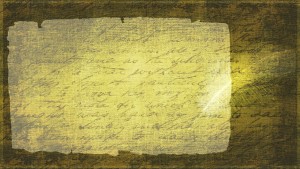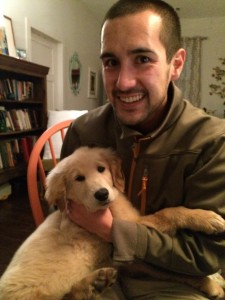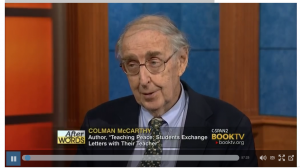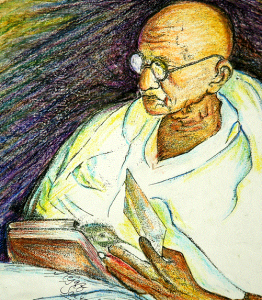As I write this, several of my students are completing the AP Literature and Language Exam. Recently I assisted one of my students with answering questions over a poem from a released practice test.
Now, I am a teacher who loves poetry. One of my favorite explanations of the power of poetry is from a poem by William Carlos Williams: “It is difficult / to get the news from poems / yet men die miserably every day / for lack / of what is found there.” So you can imagine my disappointment and rage when I discovered the way the College Board had stripped, simplified, and sterilized one of my favorite poems: “Facing It” by Yusef Komunyakaa.
Please, take the time to read the poem and get a sense for the intensity of Komunyakaa’s words. The poem is a collection of images, emotions, and remembrances from his visit to the Vietnam Veteran’s Memorial, and in the poem the Wall takes on a life of its own, becoming a portal into the past or into the future or even into another world. The poem is intense, ambiguous, and visceral. If y ou engage your imagination and stand at the wall with him—beside him—inside him, this poem will haunt you like a hungry ghost.
ou engage your imagination and stand at the wall with him—beside him—inside him, this poem will haunt you like a hungry ghost.
Contrast the power of the poem, then, with the sterilized questions the AP designed over its contents. In order to write multiple choice questions that no one can dispute, the College Board writes their questions so there is only one possible correct answer. That means, in a poem so open to new paths and possibilities, their answer becomes the one true correct interpretation of the poem. The most egregious of these questions concerns what the author is conveying in the last lines of the poem. There are so many possibilities within those three lines! Whose hair is she brushing? Is this the son of a veteran? What does he remember his father? Whose name is she trying to erase? Is it possible she can erase names in the reflected Wall? What happens when you erase a name from the Wall? None of these possibilities matter to the College Board. For them, there is only one explanation of those lines which is completely true: The author is conveying “an uncertainty about the meaning of a gesture.” And so they eviscerate the poem to its barest, basest truth, and the message, the meaning, and the emotion are lost in a safe, scripted multiple choice answer.
Indeed, in our current educational model, the constant high stakes testing over poems and stories makes literature disposable: you read it, answer questions about it, and forget about it. Done, you never have to worry about it again. And why would you want to, if the only reason you read it was to answer questions about it for some test? But poetry is more brilliant, confounding, and magical than the questions and answers on a test. To “get the news from poems” you have to have to live them. Let them linger in your mind, color your experience and your thinking, and echo through the halls of your memory until everything in that little puzzle of language clicks into place and you see it for what it truly is. “Facing it” has haunted me since I first read it in college, and every time it comes back to visit me again it jabs at me in a new way, and takes me on a new path of understanding. But this poem—and so many others—have become just another task to be completed on a test, graded, converted into a number score, and then discarded. It’s time to let poetry do its wonderful work on us again. We need to look through the four walls of our multiple choice tests and see poetry as a source for the endless possibilities that are found there.
 Joseph H. Gardella is a student, researcher and teacher at the Community Research and Action PhD program at Vanderbilt University. He is also a member of our Strategic Advisory Council (SAC), which he joined last spring.
Joseph H. Gardella is a student, researcher and teacher at the Community Research and Action PhD program at Vanderbilt University. He is also a member of our Strategic Advisory Council (SAC), which he joined last spring.







 ou engage your imagination and stand at the wall with him—beside him—inside him, this poem will haunt you like a hungry ghost.
ou engage your imagination and stand at the wall with him—beside him—inside him, this poem will haunt you like a hungry ghost.
